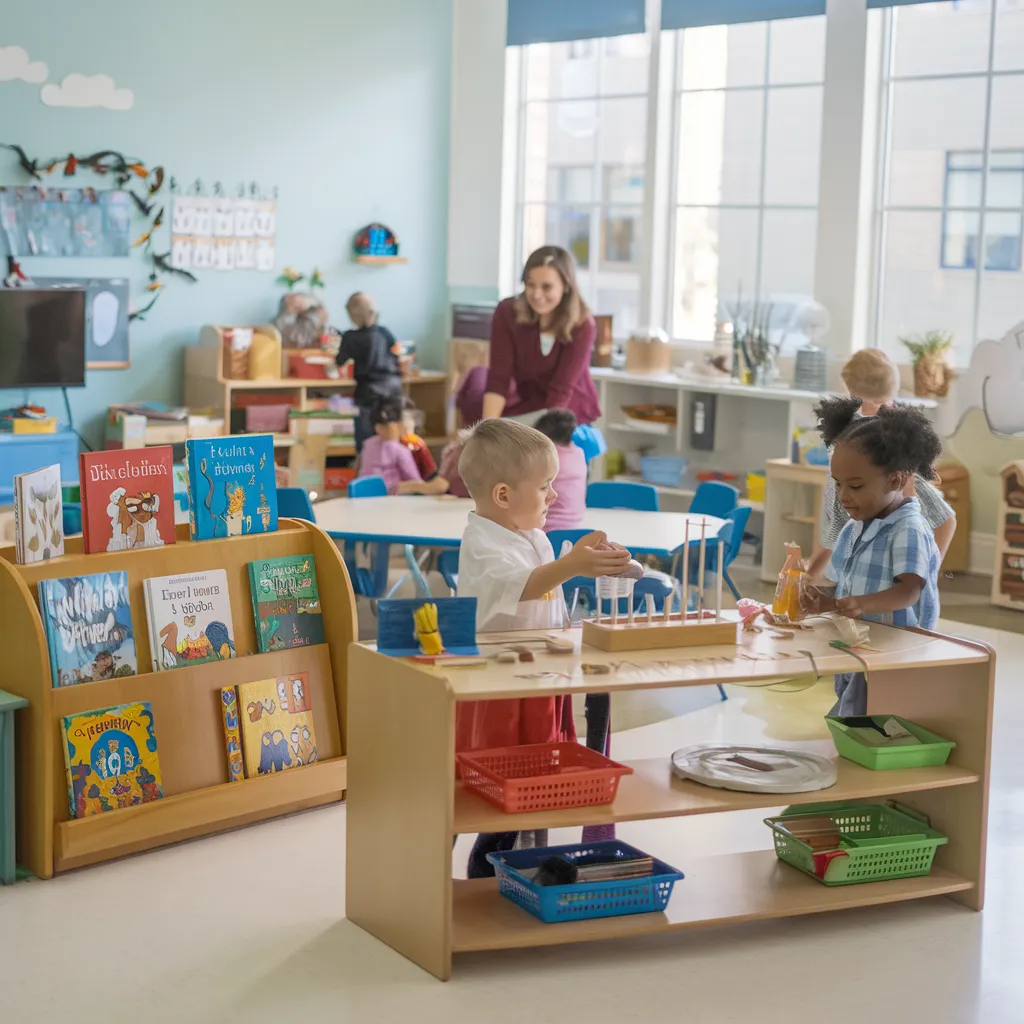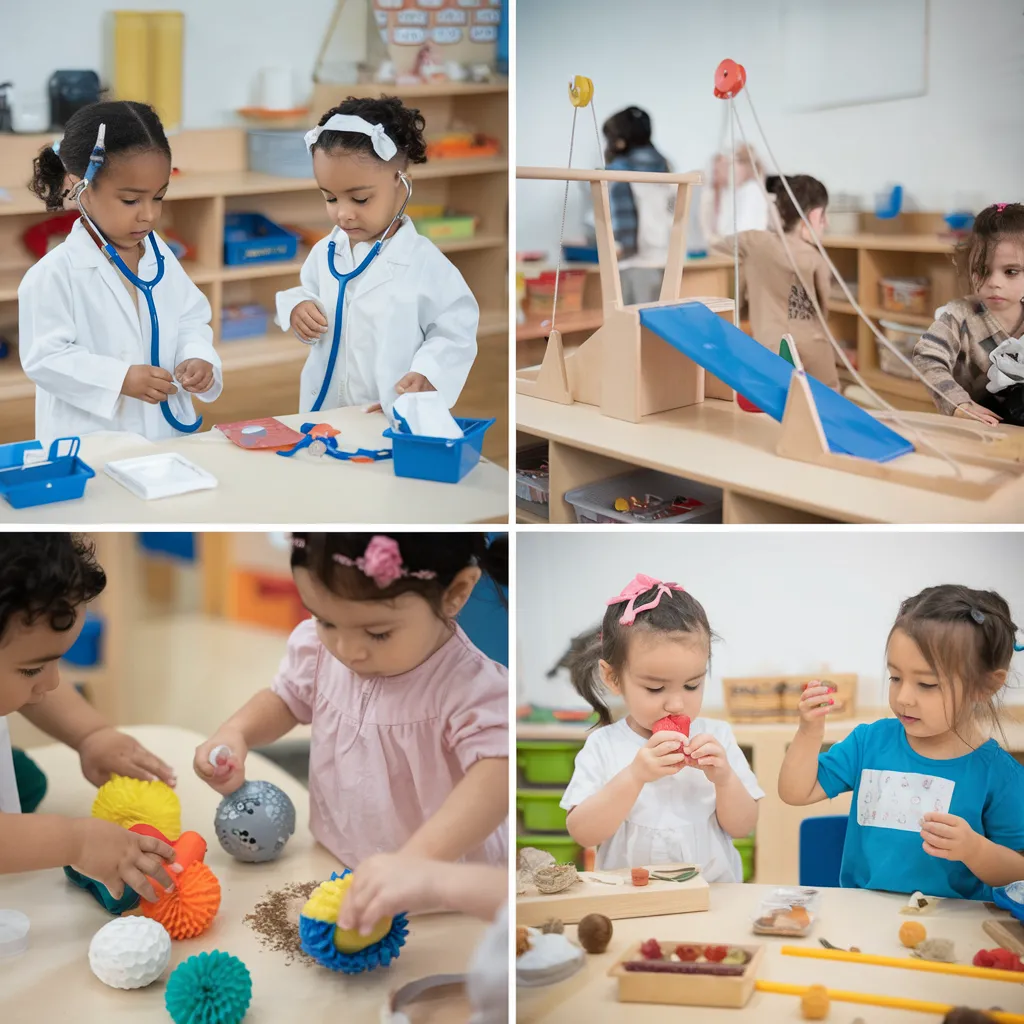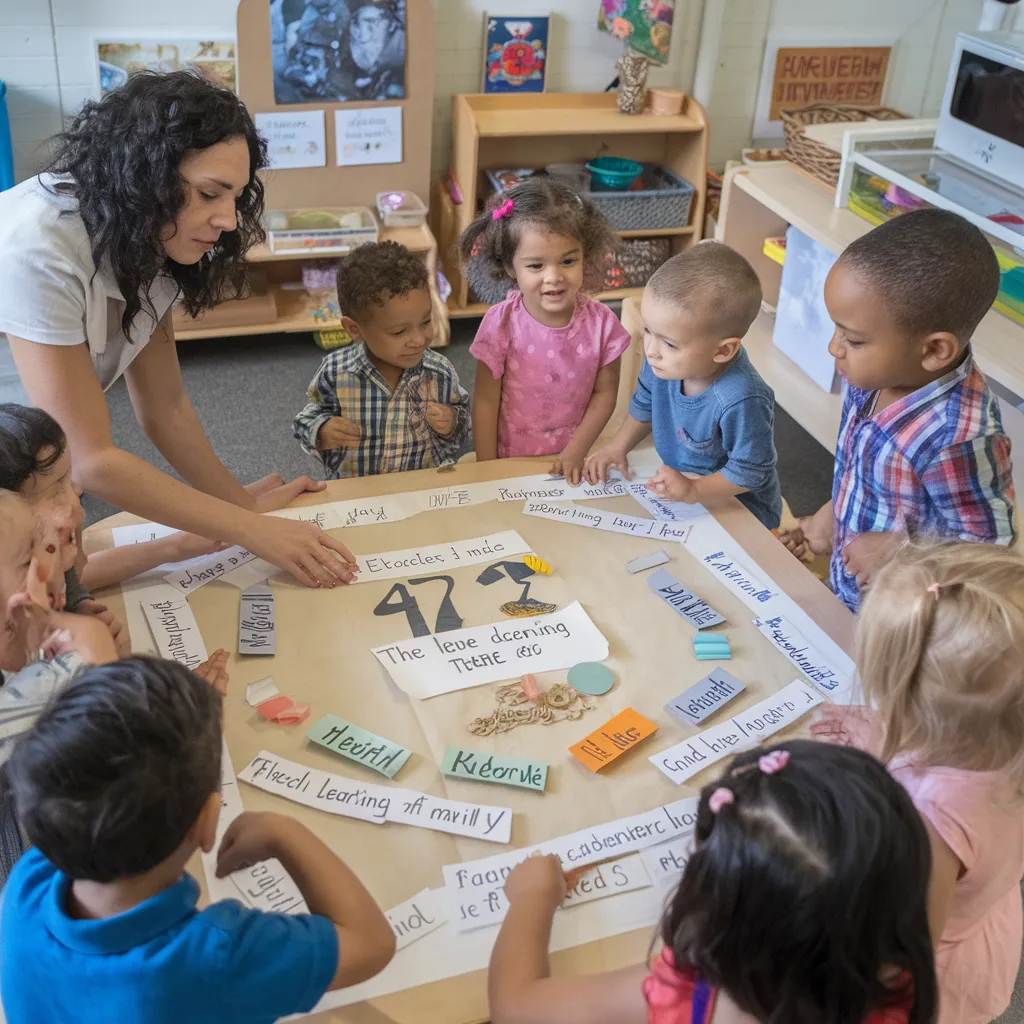Early childhood education sets the foundation for lifelong learning, and thoughtfully chosen educational themes for preschool can make all the difference. These themes create a cohesive framework that connects different learning areas, making education more meaningful and engaging for young minds. Rather than teaching isolated concepts, thematic approaches help children see connections across subjects while building vocabulary, social skills, and cognitive abilities. Whether you’re a teacher planning your classroom curriculum or a parent looking to supplement learning at home, implementing educational themes for preschool can transform ordinary activities into rich, multidimensional learning experiences that capture children’s natural curiosity and enthusiasm.

Benefits of Using Educational Themes for Preschool Development
Educational themes for preschool offer numerous developmental advantages that extend far beyond simple knowledge acquisition:
Cognitive Development
- Pattern Recognition: Themed activities help children identify connections and patterns across different contexts
- Vocabulary Building: Each theme introduces specific vocabulary in meaningful contexts
- Classification Skills: Children learn to group related ideas and objects
- Memory Enhancement: Connected information is easier to remember than isolated facts
Social-Emotional Growth
- Collaborative Exploration: Themed projects encourage children to work together
- Cultural Understanding: Diversity-focused themes build appreciation for differences
- Emotional Vocabulary: Themes about feelings help children express themselves appropriately
- Confidence Building: Becoming « experts » on a theme boosts children’s self-esteem
Physical Development
- Fine Motor Skills: Theme-related crafts strengthen small muscle control
- Gross Motor Activities: Active theme exploration develops large muscle coordination
- Sensory Integration: Multi-sensory theme experiences support neurological development
- Body Awareness: Themes about health and movement improve physical self-awareness
Implementing Seasonal Educational Themes for Preschool
Seasonal themes provide a natural rhythm to the preschool year, connecting learning to the world children observe changing around them:
Fall Educational Themes for Preschool
- Harvest and Farm Life
- Set up a farmer’s market dramatic play area
- Sort and count harvested vegetables
- Create apple print art
- Read « The Little Red Hen » and other farm-related stories
- Changing Leaves and Trees
- Collect and classify leaves by shape, color, and size
- Create leaf rubbings and prints
- Observe decomposition through simple science experiments
- Take nature walks to observe seasonal changes
- Weather Changes
- Create weather tracking charts
- Experiment with wind through pinwheels and kites
- Read books about weather phenomena
- Discuss appropriate clothing for different conditions
Winter Educational Themes for Preschool
- Hibernation and Winter Animals
- Create cave dramatic play areas
- Compare animals that hibernate versus migrate
- Make bird feeders for winter birds
- Read « Bear Snores On » and similar hibernation stories
- Light and Shadows
- Experiment with flashlights and shadow puppets
- Discuss winter solstice and changing daylight
- Create sun catchers and light table activities
- Explore reflection with mirrors and shiny objects
- Snow and Ice Exploration
- Conduct simple freezing and melting experiments
- Create snow art with paint and paper
- Build structures with ice blocks
- Measure snowfall or ice formation

Universal Educational Themes for Preschool Year-Round

Some educational themes for preschool work well regardless of season, focusing on enduring interests and fundamental concepts:
Community Helper Educational Themes for Preschool
- Medical Professionals
- Set up a doctor’s office dramatic play area
- Practice bandaging teddy bears
- Create a pictorial health chart
- Invite a nurse or doctor as a guest speaker
- Emergency Services
- Visit a fire station if possible
- Create safety plans and practice emergency procedures
- Design emergency vehicles with recycled materials
- Role-play emergency scenarios with appropriate responses
- Food Service Workers
- Create a classroom restaurant
- Practice food preparation with simple recipes
- Sort plastic food by food groups
- Discuss food safety and handwashing
Science-Based Educational Themes for Preschool
- Simple Machines
- Create ramp races to explore inclined planes
- Use pulleys to lift objects of various weights
- Find screws, levers, and wheels in everyday objects
- Build simple machines with classroom materials
- Five Senses Exploration
- Create sensory bottles and bins
- Conduct blindfolded taste tests with familiar foods
- Create sound matching games with recorded noises
- Develop scent memory games with essential oils or spices
- Plant Life Cycles
- Plant seeds and document growth through drawings
- Create parts-of-a-plant diagrams with art materials
- Taste edible plants from different plant parts (roots, stems, leaves)
- Observe decomposition in a classroom compost bin
How to Create Custom Educational Themes for Preschool
Beyond standard themes, you can design custom educational themes for preschool based on your specific context:

- Follow Children’s Interests
- Observe conversations and play patterns
- Document questions children ask frequently
- Notice books they choose repeatedly
- Build themes around current fascinations
- Incorporate Local Resources
- Design themes around nearby museums, parks, or landmarks
- Include local wildlife or ecosystems
- Feature community traditions or cultural practices
- Highlight local occupations or industries
- Address Specific Needs
- Create themes to build lagging skills
- Design themes that address social challenges
- Develop themes that celebrate classroom diversity
- Craft themes that ease transitions or changes
Planning Effective Educational Themes for Preschool
To maximize learning potential, consider these elements when developing educational themes for preschool:
- Multi-Disciplinary Connections
- Integrate math, literacy, science, and art within each theme
- Balance teacher-directed and child-led activities
- Include both individual and collaborative projects
- Offer options for different learning styles and abilities
- Family Engagement Opportunities
- Send home theme-related activity suggestions
- Request theme-supporting materials from home
- Create family projects related to current themes
- Host family events that showcase theme learning
- Documentation and Assessment
- Photograph theme-related projects and activities
- Record children’s comments and questions
- Create portfolios of theme-based learning
- Use themes to assess developmental progress naturally
Conclusion
Educational themes for preschool provide a powerful framework for meaningful early learning experiences. By connecting concepts across subjects and relating them to children’s lived experiences, thematic teaching creates deeper understanding and genuine enthusiasm for learning. Whether you follow seasonal patterns, community connections, or children’s specific interests, well-designed educational themes for preschool help young learners develop crucial skills while nurturing their natural curiosity. Begin by selecting just one theme that resonates with your children’s interests, gather supporting materials, and watch as their engagement and understanding flourish. Remember that the most effective themes incorporate plenty of hands-on experiences, open-ended questions, and opportunities for creative expression. With thoughtful implementation, educational themes for preschool can transform everyday learning into extraordinary developmental opportunities.
12 Powerful Number Tracing Printables to Boost Math Confidence
Frequently Asked Questions
How long should each educational theme for preschool last?
The ideal duration for educational themes for preschool typically ranges from one to three weeks, depending on children’s interest levels and the theme’s complexity. Shorter themes (1 week) work well for simple concepts or when introducing thematic learning. More complex themes with many facets may engage children for 2-3 weeks. Watch for signs that children are ready to move on: decreased interest, repetitive play without new insights, or frequent questions about unrelated topics. Some broad themes can extend longer if you introduce new aspects each week while maintaining the central concept.
How many activities should I plan for each educational theme for preschool?
Plan approximately 3-5 core activities per content area (literacy, math, science, art, dramatic play) for each week of your theme, totaling 15-25 theme-related activities. This provides sufficient variety while allowing for repetition, which preschoolers need for concept mastery. Include a mix of teacher-directed lessons and open-ended exploration opportunities. Always prepare a few extra extension activities for children who show particular interest in certain aspects of the theme. Remember that quality engagement matters more than quantity—fewer deep experiences often yield better learning than many superficial ones.
How can I incorporate literacy into all educational themes for preschool?
Every educational theme for preschool should include theme-related books in your reading area, new vocabulary displays with pictures, writing opportunities connected to the theme, and theme-based listening activities. Create a themed literacy center with related books, alphabet activities with theme pictures, storytelling props, and writing materials with theme-specific vocabulary cards. Read theme-related books during circle time, create charts documenting children’s theme knowledge, encourage dictated stories about theme experiences, and help children make their own books about the theme. These varied approaches ensure literacy development remains central across all educational themes.
What if children lose interest in an educational theme for preschool before I’ve completed all planned activities?
When children show decreasing engagement with educational themes for preschool, be flexible and responsive. First, try reinvigorating interest by introducing a new, exciting aspect of the theme or bringing in novel materials. If engagement remains low, consider shortening the theme and transitioning to a related concept that builds on what captured their interest. Document which activities generated enthusiasm versus which ones fell flat to inform future planning. Remember that following children’s genuine interests often leads to deeper learning than adhering strictly to predetermined plans, so view changing course as responsive teaching rather than an unsuccessful theme.
How do I assess learning during educational themes for preschool?
Assessment during educational themes for preschool should be ongoing and observation-based rather than focused on specific products or outcomes. Create simple checklists aligned with developmental expectations for the age group, noting children’s participation, vocabulary use, concept understanding, and skill development during theme activities. Take photos of children engaged in theme exploration and record their comments, questions, and explanations. Compare knowledge at the beginning versus end of the theme through drawings, discussions, or simple charts. Effective assessment captures both academic concept development and growth in approach-to-learning skills like curiosity, persistence, and creativity throughout the theme.
